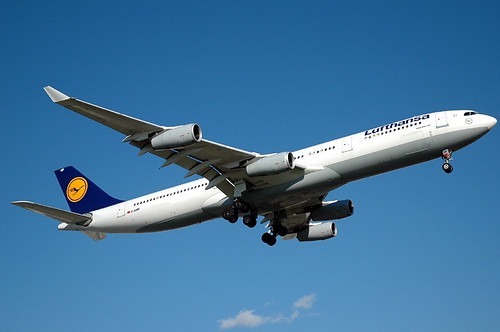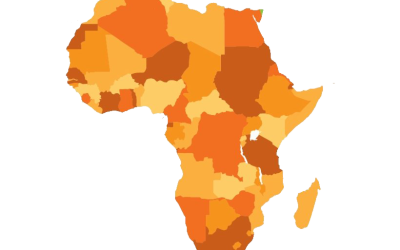Historical Relations Between France and Namibia
The historical relations between France and Namibia are shaped by a complex interplay of colonial history, diplomatic engagement, and economic cooperation. While Namibia was predominantly influenced by German and South African rule, France has played a significant role through cultural exchanges, development projects, and diplomatic ties. Understanding these interactions offers insight into the evolving relationship between the two nations and their shared interests on the international stage.
Colonial Era and Early Interactions
The historical relations between France and Namibia are limited in direct diplomatic interactions, largely due to Namibia’s colonization by Germany and later South Africa, which shaped its early history. During the colonial era, Namibia, then known as German South West Africa, was primarily influenced by German colonial policies, while France retained its influence in other parts of Africa. Although France did not have a direct colonial presence in Namibia, there were some early interactions through trade, missionary activities, and diplomatic exchanges within the broader context of European colonialism. Over time, Namibia moved towards independence from South Africa in 1990, and contemporary relations between Namibia and France have been characterized by cooperation in areas such as development assistance, education, and cultural exchanges. Historical ties are therefore more reflective of broader European-African interactions rather than specific bilateral relations between France and Namibia during the colonial era.
Post-Independence Diplomatic Developments
Historically, France and Namibia have maintained limited direct relations, primarily due to Angola and South Africa’s dominant roles in Southern Africa’s geopolitics. During Namibia’s struggle for independence, France did not play a significant colonial or direct diplomatic role, as Namibia was administered under South African rule and was part of the broader anti-apartheid movement context. However, post-independence, the diplomatic relations between France and Namibia have evolved to focus on development cooperation, economic ties, and cultural exchanges.
Since Namibia gained independence in 1990, France has established diplomatic relations characterized by mutual interest in fostering development and trade partnerships. France has been involved in supporting Namibia’s development projects, particularly in areas such as education, infrastructure, and environmental conservation. The two countries have also engaged through various bilateral agreements, promoting cooperation in science, technology, and cultural exchanges. France’s interest in Namibia aligns with its broader Africa policy, emphasizing sustainable development and fostering diplomatic and economic ties with Southern African nations.
Post-independence diplomatic developments include regular high-level visits, participation in regional forums, and collaborative efforts in international organizations. France has also contributed to Namibia’s efforts in peacekeeping and has supported initiatives aimed at combating climate change, especially considering Namibia’s rich biodiversity and environmental challenges. Overall, France and Namibia’s relationship, though not historically longstanding, has grown steadily in recent decades, emphasizing mutual development objectives and international cooperation.
Key Historical Agreements and Treaties
The historical relations between France and Namibia are shaped by a complex mix of diplomatic, economic, and cultural engagements primarily emerging from Namibia’s colonial past and subsequent independence. Though France did not have direct colonial involvement in Namibia, the two countries have fostered bilateral connections through development aid, diplomatic exchanges, and cooperation in various international forums. Over the years, these relations have strengthened, emphasizing shared interests such as regional stability, economic development, and environmental conservation.
Key historical agreements and treaties between France and Namibia include bilateral agreements focused on development cooperation, cultural exchanges, and economic partnerships. Notably, France has provided technical and financial assistance to Namibia in areas such as renewable energy, education, and health. While there are no specific colonial treaties between the two nations, their contemporary agreements reflect a strategic partnership aimed at fostering sustainable growth and collaboration on international issues.
Diplomatic and Political Relations
Diplomatic and political relations serve as the foundation for cooperation and understanding between nations. These interactions shape the diplomatic landscape, influence policies, and foster mutual growth. In the context of France and Namibia, these relations highlight a history of collaboration, diplomatic engagement, and shared interests that contribute to regional stability and development.
Official Diplomatic Missions and Embassies
France and Namibia maintain active diplomatic and political relations, characterized by mutual cooperation and diplomatic engagement. The two countries have established official diplomatic missions to facilitate communication, foster economic ties, and support cultural exchanges. France has an embassy in Windhoek, Namibia’s capital, serving as the main diplomatic representation and providing consular services to its citizens while promoting bilateral relations. Namibia, in turn, maintains an embassy in Paris, which functions as the primary channel for diplomatic dialogue, fostering partnerships in areas such as education, sustainable development, and economic cooperation. These official diplomatic missions play a vital role in strengthening the historical and strategic ties between France and Namibia, ensuring ongoing collaboration and mutual understanding on regional and global issues.
High-Level Visits and Political Engagements
France and Namibia maintain active diplomatic and political relations founded on mutual respect and cooperation. The two countries have engaging dialogues on various global and regional issues, fostering a strong partnership that supports development, stability, and shared interests. High-level visits between officials from France and Namibia serve as vital platforms for strengthening diplomatic ties, promoting economic collaboration, and discussing regional security and environmental challenges.
These diplomatic engagements often include state visits, ministerial meetings, and international conferences where leaders exchange views and reinforce their commitments. Such interactions contribute significantly to deepening bilateral relations and enhancing Namibia’s integration into international frameworks with support from France. Overall, France and Namibia continue to prioritize political dialogue, collaboration in multilateral forums, and shared efforts to achieve sustainable development and peace.
Multilateral Cooperation and Alliances
France and Namibia maintain a relationship characterized by diplomatic engagement, political cooperation, and participation in multilateral initiatives. The two countries have developed strong diplomatic ties through various bilateral agreements that foster economic, cultural, and developmental cooperation. France’s support for Namibia’s efforts in sustainable development and regional stability highlights the strategic importance of their partnership.
In terms of multilateral cooperation, France actively participates in regional and international organizations alongside Namibia, collaborating on issues such as climate change, peacekeeping, and economic development. Both nations are members of global forums like the United Nations, where they work together to promote peace, security, and sustainable growth. France’s partnerships with Namibia are also complemented by regional alliances in Africa, underscoring their shared commitment to stability and progress across the continent.
Furthermore, France’s engagement with Namibia through alliances and partnerships reflects a broader strategy of fostering South-South and North-South cooperation aimed at achieving mutual benefits. These efforts contribute to strengthening bilateral ties and enhancing Namibia’s integration into global and regional frameworks, ensuring their relationship continues to evolve in a positive and collaborative manner.
Economic and Trade Relations
France and Namibia share a dynamic economic and trade relationship characterized by mutual interests and collaborative initiatives. These relations are built on strong historical ties and a growing focus on sustainable development, technology exchange, and investment opportunities. As both countries seek to enhance their economic partnership, they leverage their unique strengths to foster thriving trade relations and contribute to regional stability and growth.
Trade Volume and Key Commodities
France and Namibia have developed significant economic and trade relations over recent years, driven by mutual interests and strategic partnerships. The trade volume between the two countries has shown steady growth, reflecting a strengthening of their economic ties. France primarily imports minerals, such as uranium and diamonds, and agricultural products from Namibia, while exporting machinery, pharmaceuticals, and manufactured goods to Namibia. Key commodities exchanged include Namibia’s natural resources, especially precious metals and minerals, and French technology and consumer goods. These trade interactions are supported by various bilateral agreements aimed at enhancing economic cooperation, encouraging investment, and fostering sustainable development. Overall, the economic relationship between France and Namibia continues to evolve, contributing positively to both nations’ economic prospects.
Foreign Investment and Business Partnerships
France and Namibia have fostered strong economic and trade relations over the years, creating a mutually beneficial partnership that promotes trade, investment, and business collaboration. France is one of Namibia’s key European economic partners, actively engaging in diverse sectors such as renewable energy, mining, agriculture, and infrastructure development. The two countries work together to enhance trade flows, with France importing Namibian minerals and agricultural products while increasing the export of French technology and services to Namibia.
Foreign investment from France into Namibia has been steadily growing, driven by France’s interest in Namibia’s natural resources and strategic positioning in Africa. French companies have invested in mining operations, renewable energy projects, and tourism industries, contributing to Namibia’s economic diversification and job creation. Additionally, Namibia’s favorable investment climate and government incentives attract further French business interests seeking to expand into the African market.
Business partnerships between French and Namibian firms have also expanded, facilitated by various bilateral agreements and initiatives aimed at promoting entrepreneurship and technology transfer. These collaborations often focus on sustainable development, environmental conservation, and innovation, aligning with both countries’ commitments to a greener economy. Overall, the economic and trade relationship between France and Namibia remains a vital component of Namibia’s economic landscape and France’s strategic interests in Africa.
Development Assistance and Economic Aid
France and Namibia have cultivated strong economic and trade relations over the years, fostering mutually beneficial cooperation across various sectors. France remains one of Namibia’s key trading partners, particularly in areas such as mining, energy, and infrastructure development. Trade exchanges include the import of Namibian minerals and the export of French technology and goods, contributing to economic growth in both countries.
Development assistance from France to Namibia has played a significant role in supporting the country’s development goals, especially in education, health, and sustainable environmental initiatives. France has provided financial aid, technical expertise, and capacity-building programs aimed at fostering economic stability, social progress, and environmental resilience in Namibia. These efforts reflect France’s commitment to promoting development that aligns with Namibia’s national priorities.
Economic aid from France has also included support for renewable energy projects, such as solar power initiatives, which are vital for Namibia’s goal of increasing sustainable energy access. Through bilateral cooperation and participation in international development frameworks, France continues to strengthen its partnership with Namibia, contributing to the country’s economic diversification and social development goals.
Cultural and Educational Exchanges
Cultural and educational exchanges play a vital role in fostering mutual understanding and strengthening ties between nations. Between France and Namibia, these exchanges serve as a bridge to share traditions, language, and knowledge, enriching both societies. Through programs, student mobility, and cultural projects, France and Namibia build lasting relationships that promote cooperation and friendship across continents.

Academic Collaborations and Student Exchanges
France and Namibia have fostered strong cultural and educational ties through various exchanges and collaborations. These initiatives aim to promote mutual understanding, knowledge sharing, and development in both countries.
Cultural exchange programs between France and Namibia often include art exhibitions, music festivals, and language courses that highlight the rich heritage of Namibia and France. Such activities encourage intercultural dialogue and deepen appreciation for each country’s traditions and history.
Academic collaborations are a key component of their relationship, with universities and research institutions partnering on projects related to environmental studies, tourism, and sustainable development. These collaborations facilitate knowledge transfer, joint research, and innovation, benefiting students and scholars from both nations.
Student exchanges are also prominent, with Namibian students studying in France and vice versa. These programs provide students with exposure to different educational systems, languages, and cultural environments, enhancing their academic and personal growth. Scholarships and internship opportunities further support these exchanges, strengthening bilateral ties and creating lifelong networks.
Overall, France-Namibia educational and cultural exchanges contribute significantly to building international cooperation, fostering respect, and promoting shared progress in various fields.
Cultural Programs and Events
Cultural and educational exchanges between France and Namibia foster mutual understanding and strengthen ties through various programs and initiatives. These exchanges often include student and scholar scholarships, joint research projects, and language learning opportunities that promote French culture in Namibia and vice versa.
France supports a wide range of cultural programs and events in Namibia, such as art exhibits, music festivals, and film screenings that showcase French heritage and contemporary creativity. These initiatives serve to deepen the cultural connection and provide Namibian audiences with access to diverse French artistic expressions.
Additionally, France and Namibia collaborate on educational initiatives like workshops, language courses, and academic conferences to enhance cross-cultural dialogue. These efforts promote better awareness of each other’s history, language, and traditions, contributing to a vibrant cultural and educational relationship between the two countries.
Language Promotion and Cultural Heritage Projects
France-Namibia collaborations in the realm of cultural and educational exchanges have significantly enriched mutual understanding and cooperation between the two nations. These initiatives facilitate student exchanges, academic partnerships, and cultural programs that promote deepened knowledge of each other’s histories, arts, and social values. Language promotion, particularly through French language courses and certification programs in Namibia, plays a vital role in strengthening diplomatic and cultural ties, enabling Namibians to access broader educational and professional opportunities. Additionally, projects dedicated to preserving and showcasing Namibia’s rich cultural heritage, such as museums, festivals, and traditional craft exhibitions, help foster pride and global recognition of Namibian traditions. Conversely, France’s contributions to cultural heritage projects in Namibia often include supporting the restoration of heritage sites and facilitating artistic collaborations, thus creating a vibrant dialogue that benefits both nations and celebrates their shared commitment to cultural diversity and understanding.
Development Cooperation and Aid Initiatives
Development cooperation and aid initiatives play a vital role in fostering sustainable growth and strengthening international partnerships. France and Namibia have built a collaborative relationship through various projects aimed at improving education, healthcare, infrastructure, and economic development. These efforts reflect a shared commitment to supporting Namibia’s progress while promoting mutual understanding and cooperation between the two countries.
French Development Agencies in Namibia
France has actively engaged in development cooperation and aid initiatives in Namibia through its dedicated French development agencies. These agencies focus on supporting Namibia’s socio-economic growth, environmental sustainability, and capacity-building efforts. France’s involvement includes projects in education, healthcare, renewable energy, and infrastructure development, aiming to foster long-term sustainable development in Namibia. By providing technical assistance, financial support, and expertise, the French development agencies contribute significantly to Namibia’s development goals and strengthen the bilateral relations between the two countries.
Projects in Infrastructure, Health, and Education
France and Namibia have collaborated on various development cooperation and aid initiatives aimed at strengthening infrastructure, health, and education sectors within Namibia. These projects are designed to promote sustainable development and improve the quality of life for Namibian communities. French-supported infrastructure projects include the construction of roads, renewable energy facilities, and water supply systems, which facilitate economic growth and access to essential services. In the health sector, France has contributed to building healthcare facilities, supporting disease prevention programs, and training medical personnel to combat health challenges such as HIV/AIDS and tuberculosis. Educational initiatives funded by France focus on enhancing school infrastructure, providing scholarships and teaching resources, and promoting skills development to empower Namibia’s youth. These collaborative efforts reflect France’s commitment to fostering long-term development partnerships that address Namibia’s priorities and promote regional stability and prosperity.
Impact and Outcomes of Cooperative Projects
Development cooperation and aid initiatives between France and Namibia have played a significant role in fostering sustainable growth and addressing key socio-economic challenges in Namibia. Through various projects focused on education, healthcare, infrastructure development, and environmental conservation, France has contributed to enhancing the quality of life for Namibians and promoting long-term development goals.
The impact of these cooperative projects is evident in improved healthcare services, increased access to education, and strengthened institutional capacities within Namibia. For example, collaboration on renewable energy projects has advanced Namibia’s efforts to diversify its energy sources and reduce reliance on fossil fuels, supporting climate resilience and sustainable development. Additionally, educational exchanges and technical assistance foster knowledge transfer and empower local communities.
Outcomes of these initiatives include economic growth, capacity building, and improved social infrastructure, which collectively contribute to Namibia’s goal of achieving sustainable development pathways. The partnership also emphasizes the importance of respecting local contexts and enhancing local ownership to ensure that projects remain effective and have a lasting positive impact. These ongoing efforts demonstrate the value of international cooperation in addressing global development challenges and fostering mutual growth between France and Namibia.
Environmental and Sustainable Development Cooperation
Environmental and sustainable development cooperation between France and Namibia highlights a strategic partnership dedicated to addressing global environmental challenges while promoting sustainable growth. By working together, these nations aim to protect Namibia’s unique ecosystems, foster renewable energy initiatives, and share innovative solutions for climate resilience. Such collaboration underscores their commitment to ensuring a healthier planet for future generations.
Joint Environmental Projects and Initiatives

France and Namibia have established a strong partnership focused on environmental preservation and sustainable development. Through joint initiatives and collaborative projects, both countries aim to address pressing environmental challenges such as biodiversity conservation, climate change mitigation, and sustainable resource management. France’s expertise in renewable energy and ecological innovation complements Namibia’s rich natural landscapes and commitment to conservation efforts. These joint environmental projects seek to promote sustainable practices, enhance local communities’ resilience, and foster international cooperation in environmental stewardship. Such collaborations not only benefit the environment but also contribute to economic development and social well-being in Namibia, exemplifying the importance of multilateral efforts for a sustainable future.
Climate Change Collaboration
France and Namibia have been engaging in various environmental and sustainable development initiatives aimed at combating climate change and promoting ecological resilience. Their cooperation emphasizes the importance of joint efforts to address global environmental challenges through technology transfer, capacity building, and sustainable resource management. France’s commitment to climate action is reflected in support for Namibia’s renewable energy projects, particularly solar and wind energy, which contribute to reducing dependency on fossil fuels and lowering greenhouse gas emissions. Additionally, both countries collaborate on biodiversity conservation, focusing on protecting Namibia’s unique ecosystems and promoting sustainable tourism practices that benefit local communities. These partnerships exemplify a shared dedication to fostering environmentally responsible development that benefits present and future generations.
Success Stories and Future Prospects
France and Namibia have demonstrated a strong commitment to environmental and sustainable development cooperation, fostering initiatives that promote ecological preservation, renewable energy, and community resilience. Their partnership has resulted in successful projects such as solar energy installations, water resource management, and conservation programs that benefit local communities and ecosystems. These efforts exemplify how international collaboration can effectively address global environmental challenges while supporting sustainable growth in Namibia.
Success stories include the development of solar power plants in Namibia, which have expanded access to clean energy and reduced reliance on fossil fuels, contributing to climate change mitigation. Additionally, joint conservation initiatives have helped preserve Namibia’s unique biodiversity, including efforts to protect its iconic wildlife species and habitat restoration projects. Such accomplishments highlight the potential for continued cooperation that aligns economic development with environmental sustainability.
Looking ahead, future prospects between France and Namibia in this domain are promising. Enhanced technological transfer, increased investment in renewable energy, and capacity-building initiatives are likely to further strengthen their partnership. Collaborative research and innovation can lead to scalable solutions for climate resilience, sustainable agriculture, and responsible resource management. This ongoing dialogue and cooperation symbolize a shared dedication to fostering a greener, more sustainable future for Namibia, with France playing a vital role as a supportive partner in environmental progress.
Challenges and Opportunities in France-Namibia Relations
France and Namibia share a relationship shaped by diverse challenges and promising opportunities. As they continue to strengthen diplomatic, economic, and cultural ties, both nations navigate complex geopolitical and environmental issues that influence their cooperation. Exploring these dynamics reveals the potential for mutual growth and the obstacles that must be addressed to deepen their partnership effectively.
Geopolitical and Economic Challenges
France-Namibia relations present a range of challenges and opportunities rooted in geopolitical and economic contexts. Geopolitically, Namibia’s strategic location in Southern Africa offers France an opportunity to strengthen its influence in the region through diplomatic engagement and regional initiatives. However, navigating regional political dynamics and aligning allied interests can pose diplomatic challenges. Economically, France’s interest in Namibia includes investing in sectors such as mining, renewable energy, and infrastructure, which can foster mutual growth. Nonetheless, hurdles such as establishing sustainable trade partnerships, adapting to local regulatory environments, and addressing competition from other international players remain significant. Despite these challenges, the relationship between France and Namibia holds the potential to expand through increased cooperation, technology transfer, and joint development projects, benefiting both nations in navigating the complexities of the modern geopolitical and economic landscape.
Opportunities for Enhanced Cooperation
France-Namibia relations present a dynamic landscape of challenges and opportunities, shaped by their historical ties, economic interests, and shared regional goals. Despite cultural and language differences, both countries have recognized the potential for strengthening cooperation across various sectors.
One of the key challenges in France-Namibia relations is the limited economic exchange, partly due to geographical distance and underdeveloped trade infrastructure. Additionally, political stability and regional security issues in Africa can impact collaborative efforts. There are also cultural and language barriers that require ongoing diplomatic and educational engagement to foster mutual understanding.
However, numerous opportunities exist to deepen partnership and cooperation. France’s expertise in renewable energy, healthcare, and education can significantly benefit Namibia’s development goals. Namibia’s rich natural resources and strategic position as a regional hub offer prospects for joint ventures in mining, tourism, and agriculture. Furthermore, educational exchanges and capacity-building initiatives can promote people-to-people links and foster long-term cooperation.
Enhanced diplomatic engagement and strategic partnerships can pave the way for increased investment, technology transfer, and capacity development. Leveraging France’s experience in sustainable development and Namibia’s emerging markets could facilitate mutual growth, stability, and prosperity in the region. Overall, fostering open dialogue and collaborative projects will help maximize the strengths and opportunities inherent in France-Namibia relations.
Future Outlook and Strategic Goals
The France-Namibia relationship presents a dynamic blend of challenges and opportunities that can shape future cooperation. Historically, the partnership has been influenced by economic, diplomatic, and cultural exchanges, yet it faces hurdles such as geopolitical shifts, economic disparities, and the need for sustainable development. Namibia’s commitment to diversifying its economy and improving governance creates openings for France to offer technical assistance, investment, and expertise, particularly in sectors like renewable energy, mining, and tourism. However, aligning interests and fostering mutual understanding require continuous diplomatic efforts and strategic engagement.
Looking ahead, the relationship between France and Namibia holds significant potential for growth, especially in areas such as climate change adaptation, sustainable resource management, and educational collaboration. Both nations can benefit from expanding bilateral trade, joint research initiatives, and capacity-building programs that leverage their respective strengths. Emphasizing environmentally sustainable projects and fostering people-to-people connections can deepen ties and create a lasting partnership based on shared values and mutual benefit.
Strategic goals for the future should focus on enhancing economic cooperation through diversified investments and trade facilitation, strengthening diplomatic dialogue to navigate geopolitical complexities, and supporting Namibia in achieving its development priorities. France can serve as a key partner in helping Namibia transition to a greener economy while promoting cultural exchanges and educational opportunities that foster a deeper understanding between the two countries. Building resilient, adaptable, and mutually advantageous relations will ensure long-term progress and stability in France-Namibia cooperation.





0 Comments